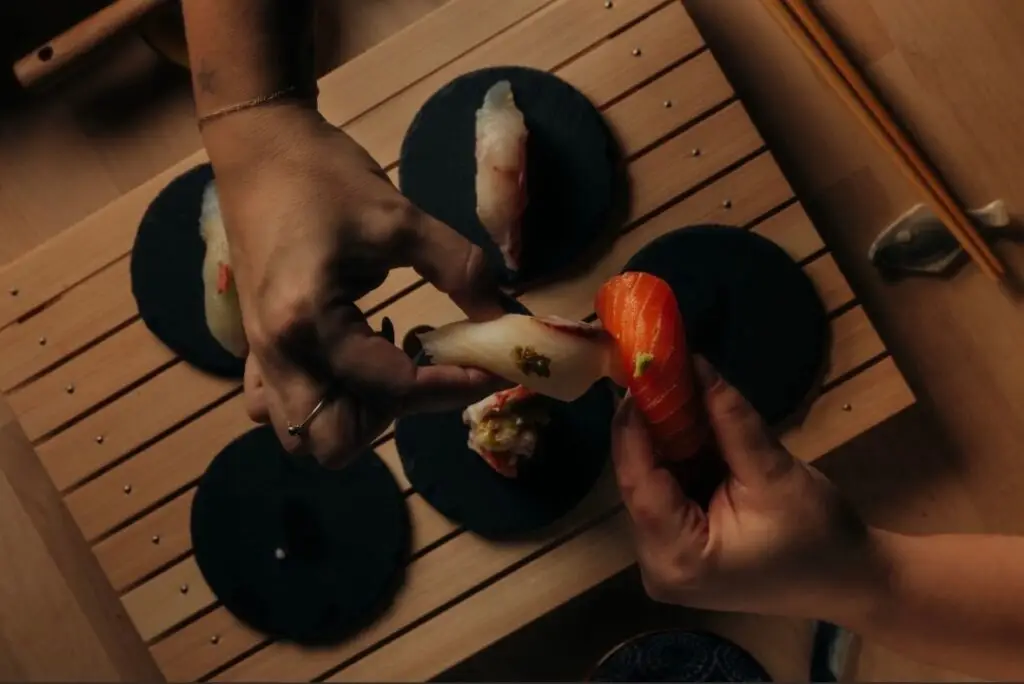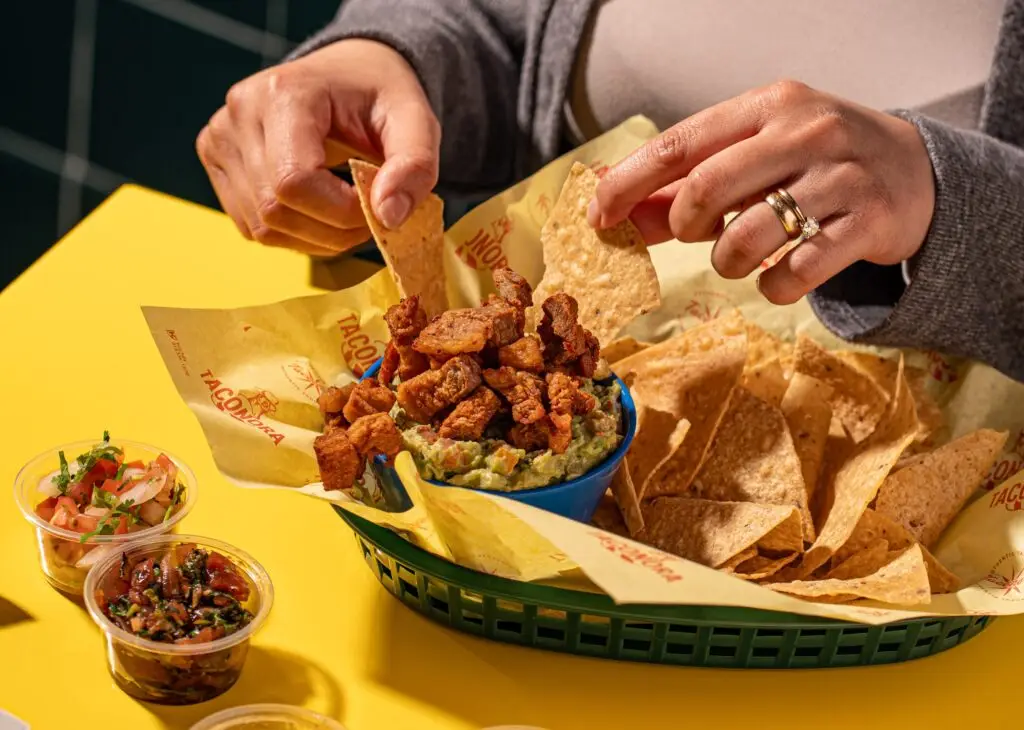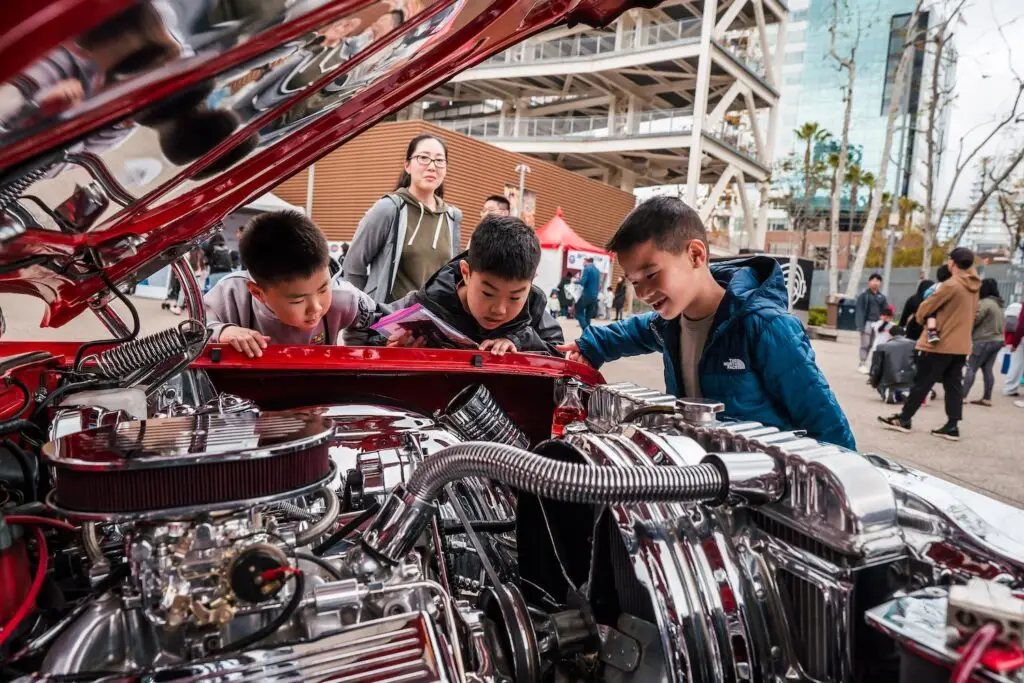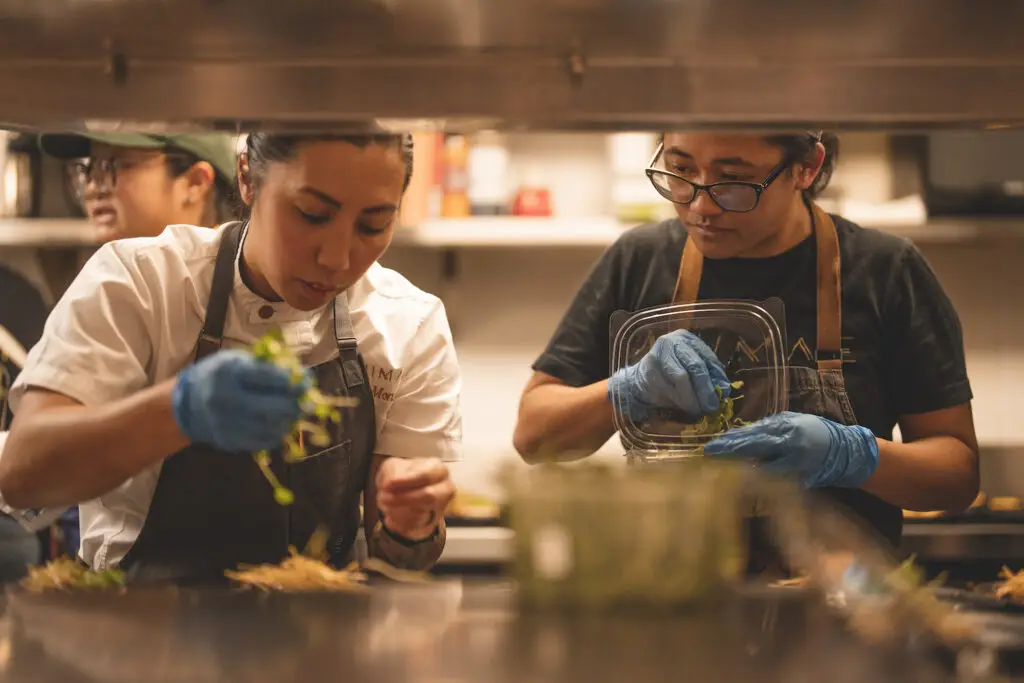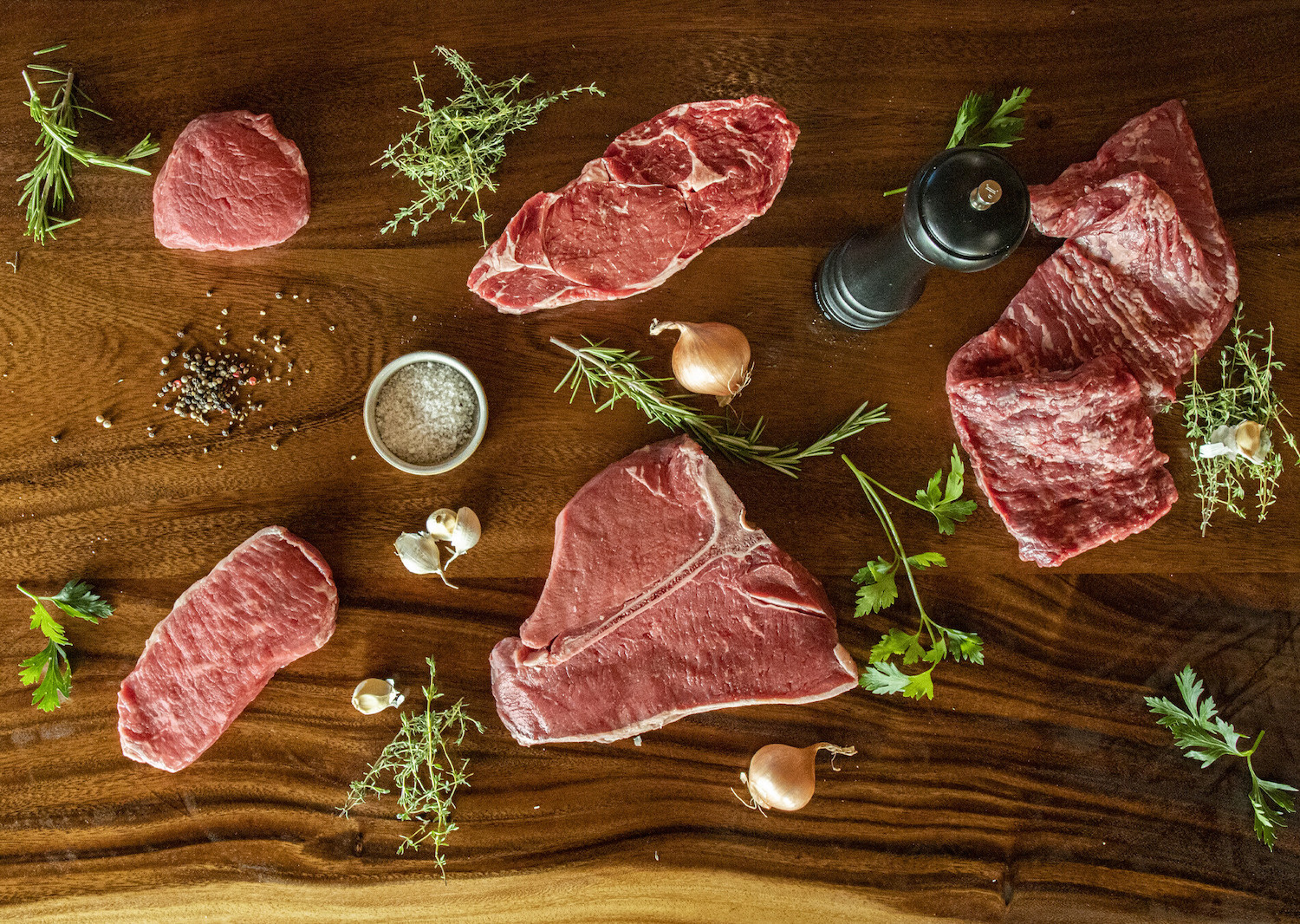Ty Thompson already built his pork legacy at Thompson Heritage Ranch. Now, he’s ready to take on beef.
Launched in 2022, the regenerative farm in Ramona supplies pasture-raised pork all over San Diego to top restaurants like Cellar Hand, Herb & Sea, Papalo Sonoran-style BBQ, and many more. Chefs covet Thompson’s Berkshire pigs for their abundance of flavor, rich marbling, and accommodating texture. They lead lives free of cages, fed an all-organic diet without any GMOs, corn, or soy—basically, they’re the Kobe beef of the pork world.
Come August, his pampered pigs will get some company when he adds a small herd of 100 percent full-blood Piedmontese cattle to the ranch to begin breeding and launch a premium beef brand with his partner ranch, Land & Feast.
“Everything comes back to ‘You are what you eat,’” says Thompson. He explains that there’s a lot of confusion and misconception about the meat industry, and he’s made it his life’s work to educate people on where food comes from and its potential to affect health and the earth itself. To do that, “know your farmers,” he says. “That’s a huge thing to know.”
Piedmontese cattle originally come from the Piedmont region of northwest Italy and contain a gene mutation that causes a much higher lean-to-fat ratio than many other cattle breeds, as well as tiny muscle fibers that allow the animals to develop what’s known as “double muscling.”
“[That gene] makes the muscle fibers one-sixteenth the diameter of conventional beef muscle fibers,” explains Justin Owens, an eighth-generation cattle rancher at Owens Farms in Spokane, Washington, who supplied Thompson with his initial head of around a dozen Piedmontese. He is also responsible for North America’s first 100 percent Piedmontese beef label, Manzo Piedmontese. “Nobody has ever done an exclusively full-blood Piedmontese beef label,” he claims. “I think this is the moment when Piedmontese is introduced to most of the public for the first time.”
He explains that although the breed contains more collagen than most beef breeds and lacks the typical marbling, the connective tissue is so delicate that its meat is much more lean. “It’s the most tender beef that has been identified,” he claims. “The top round is as tender as USDA Prime ribeye.” Plus, due to their lean bodies, Piedmontese eat less and have a finer bone structure, leading to less waste on the carcass and hides that can be used for leather.
Of the roughly 29 million beef cattle currently in the United States, the vast majority are Angus cattle, along with other popular breeds like Texas Longhorn, Hereford, and Holstein. Piedmontese make up less than one-half of one percent of that number, and every single one can be traced back to one bull and four cows brought to Canada in 1979. From a nutritional standpoint, according to the Piedmontese Association of the United States, Piedmontese meat contains around half the calories of traditional beef, almost no fat, and more protein. Plus, Owens claims crossbred half-Piedmontese meat cooks around 30 percent of the time of conventional beef, while full-bloods cook in half the time.
“We’ve cooked a four pound Porterhouse or Fiorentina in 11 or 12 minutes,” he recalls. “Just outrageous.”
PARTNER CONTENT
Because of its current scarcity and exceptional nutrition profile, Thompson says he plans to sell his minimal supply to a minimal number of chefs for around $100 a pound. (For comparison, one pound of 85 percent lean grass-fed organic ground beef costs around $11.49 on Instacart, and a USDA Prime boneless ribeye at Ralphs runs around $19.99 per pound.) Right now, professional athletes are the primary audience for ultra-exclusive meat. Thompson wants to get this new product into a few kitchens around San Diego to begin the beef conversion.
“The only chef that I’ve brought it to right now is Tara [Monsod] at Le Coq,” he says. “But it’s very hard to cook… because it’s not your average beef.” Despite the price tag and preparation learning curve, Thompson believes that Piedmontese beef is the industry’s future in nutrition, carbon footprint, and flavor. “In a blind taste test against Wagyu, Angus, F1s, these Piedmontese will take number one,” he says, adding, “It 100 percent will be the biggest movement in beef for the next 50 years. And it’s all starting on the West Coast.”
